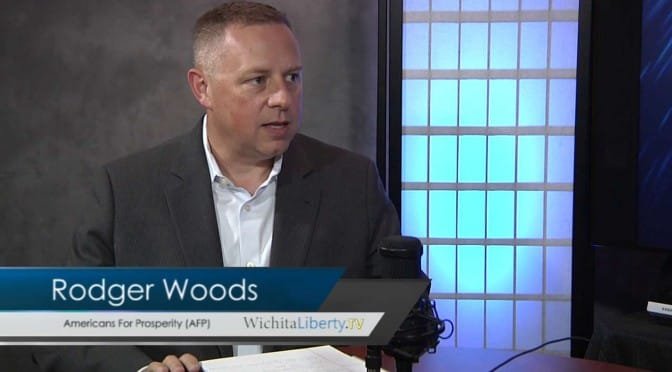Tag: Free markets
-

Intellectuals vs. the rest of us
Why are so many opposed to private property and free exchange — capitalism, in other words — in favor of large-scale government interventionism? Lack of knowledge, or ignorance, is one answer, but there is another.
-

WichitaLiberty.TV: Rodger Woods of Americans for Prosperity-Kansas
Americans for Prosperity is one of the largest grassroots political action groups. Its motto is “Economic Freedom in Action.” Rodger Woods, deputy state director for AFP-Kansas, joins me to explain AFP’s mission and goals, and some specific issues.
-

Wichita Chamber speaks on county spending and taxes
The Wichita Metro Chamber of Commerce urges spending over fiscally sound policies and tax restraint in Sedgwick County.
-

Federal rules serve as ‘worms’ buried in promises of ‘free money’
An often unappreciated mechanism throughout the Kansas budget severely limits the ability of legislators and governors to adapt to changing state priorities. A new paper from Kansas Policy Institute explains.
-

The real free lunch: Markets and private property
As we approach another birthday of Milton Friedman, here’s his article where he clears up the authorship of a famous aphorism, and explains how to really get a free lunch
-
Kansas senators vote to advance Ex-Im Bank
Kansas senators vote to advance Ex-Im Bank
-

Friedman: Laws that do harm
As we approach another birthday of Milton Friedman, here’s his column from Newsweek in 1982 that explains that despite good intentions, the result of government intervention often harms those it is intended to help.
-

‘Love Gov’ humorous and revealing of government’s nature
A series of short videos from the Independent Institute entertains and teaches lessons at the same time.
-
Are you in the top 1%?
Most Americans would be surprised to learn that they are, in fact, in the top one percent of income — when the entire world is considered. It is economic freedom in America that has been responsible for this high standard of living. But America’s ranking among the countries in economic freedom has declined, and may…
-

More government spending is not a source of prosperity
Kansas needs to trim state government spending so that its economy may grow by harnessing the benefits of the private sector over government.
-

A Wichita Shocker, redux
Based on events in Wichita, the Wall Street Journal wrote “What Americans seem to want most from government these days is equal treatment. They increasingly realize that powerful government nearly always helps the powerful …” But Wichita’s elites don’t seem to understand this.